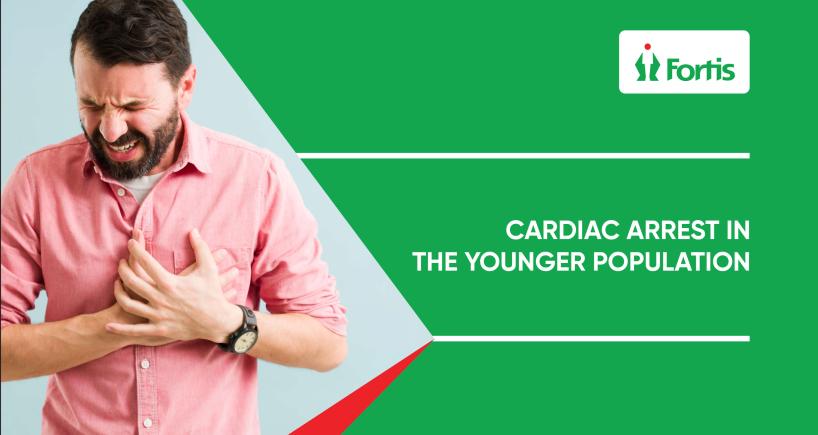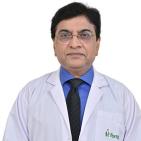
Causes of cardiac arrest in young adults - Explained!
Millions of worldwide viewers watched in shock when Christian Eriksen suddenly collapsed on the pitch during the first half of Denmark’s opening game of the Euro 2020 soccer tournament against Finland on June 12, 2021. The Danish midfielder looked fit, healthy, and in good spirits - perhaps, just about the last person you would expect to have a sudden cardiac arrest. Fortunately, he received timely cardiopulmonary resuscitation (CPR), which saved his life.
Cardiac arrest in young adults
Sudden cardiac arrest in young people is rare, but it does happen. The Centers for Disease Control and Prevention (CDC) estimates that about 2,000 young, seemingly healthy people under age 25 in the US die each year of sudden cardiac arrest. There has been an alarming trend of heart attacks and cardiac arrest in younger adults. Doctors at Fortis Hospital, Mulund, explain what can cause cardiac arrest in young people and what they can do to prevent sudden cardiac death.
What is cardiac arrest?
Cardiac arrest is when the heart suddenly stops pumping blood around your body, or the heart ceases to beat. It usually happens without any warning. When a person has a cardiac arrest, they collapse suddenly, lose consciousness, and won’t be breathing or breathing normally. Unexplained fainting, chest pain or shortness of breath, and a family history of cardiac arrest are some indications to watch for. A cardiac arrest can lead to death if not treated within minutes.
Causes of cardiac arrest in young adults
The causes of cardiac arrest usually depend on a person’s age. In people over 35, most cases of cardiac arrest are caused by coronary artery disease. In young people, the causes of cardiac arrest may vary. Some of the conditions that cause cardiac arrest in young adults include:
1. Hypertrophic cardiomyopathy
A complex type of heart disease in which the heart muscle becomes too thick.
2. Coronary artery abnormalities
Some individuals are born with coronary arteries that are connected abnormally, which can cause a decreased blood supply to the heart muscle during exercise, resulting in cardiac arrest.
3. Long QT syndrome
This inherited heart rhythm disorder can cause fast and chaotic heartbeats.
4. Brugada syndrome
A genetic disorder that disrupts the heart’s normal rhythm.
Structural abnormalities of the heart, inflammation of the heart muscle, etc, are some other causes of sudden cardiac arrest in young adults.
Can you prevent sudden cardiac death?
Here are a few steps that individuals can take to help prevent sudden cardiac death:
1. Family history
People with a family history of sudden cardiac death should talk with their doctor about screening options, which can be an effective step to help reduce the risk of sudden death.
2. Defibrillators and CPR
Having defibrillators widely available is one of the best ways to prevent sudden cardiac death. In the event of a cardiac arrest, a defibrillator can quickly deliver an electric shock to restore a normal heartbeat. Age-appropriate life-support training such as CPR in venues, including schools and sporting stadiums, can help respond effectively if someone’s heart stops.
3. Warning signs and risk factors
Recognizing warning signs and seeking immediate medical help can help save lives. Sudden cardiac arrest is believed to be a leading cause of death in young athletes, although it occurs in young adults not involved in organized sports. Your doctor may advise you to avoid competitive sports if you’re at risk of sudden cardiac death. A cardiac arrest can also happen during exercise or at rest, or even during sleep. People at high risk should talk to their doctor about precautions they can take.
Living a heart-healthy lifestyle, getting regular check-ups, and being screened for heart disease can help reduce your risk of sudden cardiac arrest in the first place.
Categories
Clear allMeet the doctor

- Cardiac Sciences | Interventional Cardiology
-
26 Years
-
1500



















